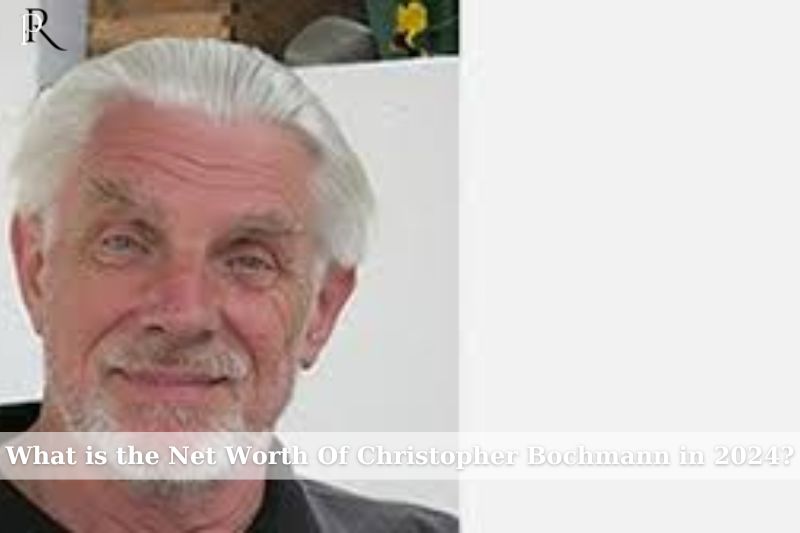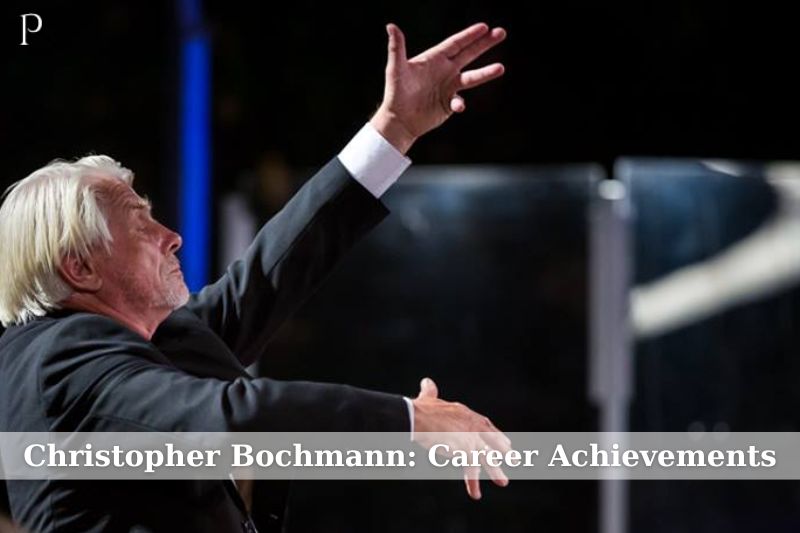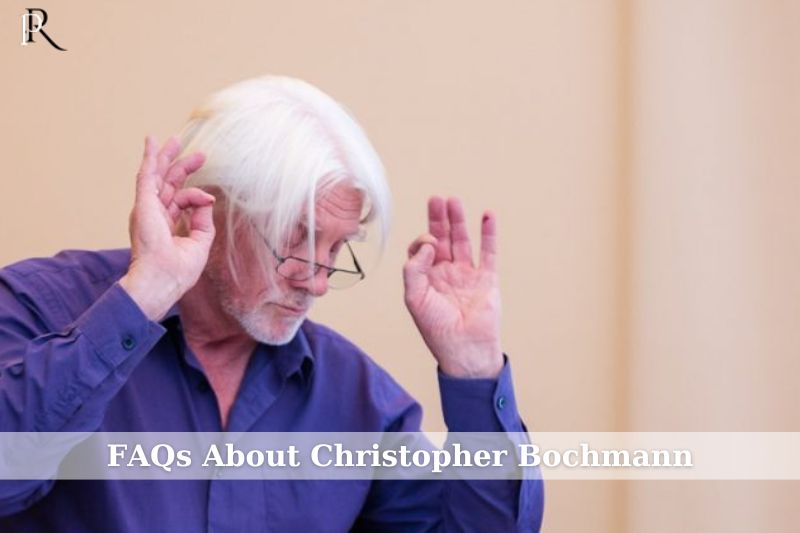Are you curious about Christopher Bochmann net worth in 2024? Join us as Rachel Parris takes you through an up-to-date exploration of the finances of this famous composer and conductor. Get ready to discover the intricacies of his wealth this year!
Quick information
| TRUTH | DETAIL |
| Real name | Christopher Consitt Bochmann |
| Popular name | Christopher Bochmann |
| Sex | male |
| Date of birth | November 8, 1950 |
| Year old | seventy three |
| Parents | Martin and Beatrice Bochmann |
| Siblings | Michael Bochmann |
| Place of birth | Chipping Norton, West Oxfordshire, UK |
| Nationality | brother |
| Nation | White skin-man |
| Education | Oxford University |
| Marital status | Married |
| Sexual orientation | Straight |
| Wife/Wife/husband | Celia Williams |
| Children | Alexandra (b. 1985), Elizabeth (b. 1989) |
| Dating | do not apply |
| Net value | do not apply |
| Origin of wealth | Composing, conducting, and teaching music |
| Height | do not apply |
What is Christopher Bochmann’s net worth in 2024?

As of 2024, Christopher Bochmann’s net worth remains undisclosed, a common scenario among classical musicians and academics, who may not be as public about their financial information as others. famous in the mainstream entertainment industry.
However, examining the careers of similar professionals in the classical music industry provides contextual understanding.
For example, famous composers and conductors in European classical music have significant net worth. Thomas Adès and Esa-Pekka Salonen are examples.
Their financial success varies according to their roles with major orchestras, committees, and teaching positions. Typically, their net worth is several million dollars.
Given his extensive career, it makes sense that his financial situation could be substantial. Highlights of his career include prestigious awards such as the OBE and many scholarly and creative contributions.
According to speculations, his net worth could be in the low to mid million dollar range. This estimate is consistent with colleagues with similar tenure and influence.
Christopher Bochmann Full Overview and Wiki
His illustrious career as composer, conductor, and educator has drawn a rich tapestry of musical influence and scholarly leadership.
Born in 1950 in picturesque Chipping Norton, UK, Bochmann’s early exposure to music came through the choir of St. George laid the foundation for what would become a remarkable journey in the world of classical music.
Early education and influence
His formidable years were marked by a great education in musical theory and composition.
At age 16, Bochmann went to Paris to study with Nadia Boulanger, then worked at Oxford University, where he absorbed the nuances of modern composition under mentors such as Kenneth Leighton and Robert Sherlaw Johnson. .
These experiences created a deep understanding of both traditional and avant-garde musical styles in Bochmann, from post-serial modernism to aleatoric musical methods, the latter heavily influencing the style. his creations.
Career achievements

Bochmann’s professional path was distinguished by a commitment to both composition and education.
Moving to Portugal in 1980, he became an important figure in the Portuguese music scene, eventually taking on roles such as Head of the Department of Music at the University of Évora.
His works often blend complex modern techniques with accessible melodic structures, bridging the gap that appeals to both connoisseurs and casual listeners.
His compositions, which include everything from operas to symphonies and chamber works, have been performed worldwide, greatly enhancing his reputation and, by extension, his potential income. .
Notable are his operas such as Corpo and Alma and orchestral works such as Concerto for orchestra (2019) demonstrates his versatility and command of large-scale musical forms.
Contribution and recognition
Beyond the concert hall, Bochmann also had a profound impact through his teaching. His methods and philosophy shaped a new generation of musicians and composers across Europe.
Recognition for his contributions came from various awards. He was appointed an Officer of the Order of the British Empire (OBE) and received the Portuguese Cultural Medal.
These honors certainly supplemented his professional achievements with financial rewards, whether direct or indirect.
Legacy and influence
As Bochmann’s career progressed, his influence on British and Portuguese music remained undeniable. The awards he has won, combined with his rich body of work and educational impact, have established him as a stalwart of contemporary classical music.
His financial interests, although not publicly quantified, may reflect his status in the academic and musical communities, with income accruing from compositions, performances, copyright and academic standing.
Social accounts
- Twitter: Not applicable
- Instagram: Not applicable
- Facebook: Not applicable
- Youtube: Not applicable
- Tik Tok: Not applicable
- Linkedin: Not applicable
Frequently asked questions about Christopher Bochmann

Who is Christopher Bochmann?
Christopher Bochmann is a British-born composer, conductor and music educator who has been influential in the music scene, especially in Portugal, where he has lived since 1980.
He is known for his contributions to contemporary music and his important role in music education.
What is his educational background?
He studied at New College, Oxford University, where his teachers included David Lumsden, Kenneth Leighton and Robert Sherlaw Johnson. He also received private instruction from Nadia Boulanger in Paris and Richard Rodney Bennett in London.
What are some important positions you have held during your career?
He served as professor and head of the Department of Music at the University of Évora and as Director of the Escola Superior de Música de Lisboa.
Additionally, he taught at several prestigious institutions including the Yehudi Menuhin School and the Escola de Música de Brasília.
Did he receive any awards?
Well, his contributions have been recognized with many awards.
These include the Lili Boulanger Memorial Fund Award, Officer of the Order of the British Empire (OBE) for his cultural contributions and the Commander of the Prince Henry Medal, awarded by the President of Portugal.
What are some of his notable compositions?
His works span many different musical genres including orchestral, chamber, choral and vocal music. He composed works such as De Profundis, String Quartet No. 2And Partita number 2among others.
What was his contribution to music theory?
He has written extensively on music theory, including books such as A Harmonic language do Tonalismo explores the language of harmony and is considered essential for the study of harmony in Portugal.
How did he influence modern music in Portugal?
Through his extensive teaching, conducting and composition activities, he has had a significant influence on the development of contemporary music in Portugal.
He was instrumental in founding many musical groups and ensembles, and his efforts nurtured a new generation of musicians.
What is your teaching philosophy?
He emphasizes bridging the gap between compositional technique and sound perception. His approach evolved from complex post-serial modernism to a style that focused on simplification without strict adherence to new tones.
Where can I find his music and publications?
Many of his music and recordings are available through the Portuguese Music Information Center. His books and other publications can be found on many online music education resources.
What projects or performances has he been involved in recently?
He remains active in music, performing and participating in music festivals and educational courses throughout Europe, especially in Portugal.
Conclusion
Thank you for exploring Christopher Bochmann’s financial journey with us this year at rachelparris.com. His profound contributions to music and strategic financial decisions in 2024 continue to shape his legacy and financial landscape.
Stay tuned for more details and information Profile of British musiciankeeps you up to date on the lives and careers of your favorite artists.
Categories: Musician
Source: svlsf.edu.vn
